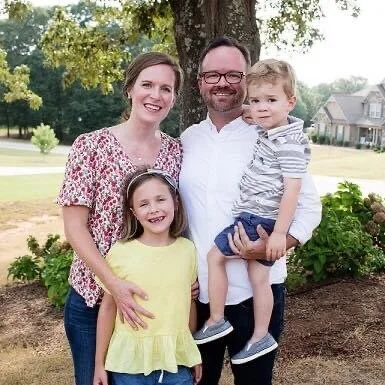A Journey Toward Ethical Orphan Care Part I: Why We Stepped Away
My husband and I have 2 blond headed “mini me” biological children and 0 adopted children. This was never the way I Imagined that my family would look back in my early 20’s. Adoption and orphan care have long been a part of my deepest convictions. We are no less convicted today that orphaned children need healthy families. We are MORE deeply convicted than ever that orphaned children need family. In 2015 during a period of infertility, we stepped into an adoption process. We met with case workers, completed full applications and began the process of paying fees.
After a handful of seemingly harmless red flags in the initial interviews with our agency case worker, we began to ask ourselves some hard questions. These were lingering questions. They had always been in the backs of our minds, but we had let them go unattended and unanswered. At the time, we had one daughter, with no promise of being able to have other children. I felt urgent to add to our family, and honestly even a little desperate. I loved being a mother and was broken over the thought that the opportunity to “mother” again was not in front of me. But, when we paused long enough to consider and pray about these lingering questions and “little” red flags, we realized that we had only one option: We closed our adoption file. The decision to step away from adoption was painful, but it was clear that there was absolutely, without a doubt no other option than to close our file. We had begun to learn that the unhindered approach to adoption within the Church had some very serious oversights.
The internet became a “thing” in the early and mid-2000’s and organizations speaking to the immense need for adoptive families began to multiply. We could follow our friends’ blogs documenting each families' adoption journey and donate easily to these causes (sometimes without much thought and introspection). In 2005 and 2006 the organization “Invisible Children” began showing us the desperate lives of orphans from the civil war in Sudan. The internet gave us the capability to see and experience the desperate daily realities on other continents. It gave our compassion an unbridled opportunity to settle in on “causes” and work towards improving the lives of others. We championed these things, often without stopping long enough to consider the long term consequences for all of the parties involved. Many of these organizations cited a massive number of orphans throughout the world (often cited in the hundreds of millions) who needed family to love and care for them, further tapping into our compassion towards the cause. The term “orphan crisis” began to surface in our churches and mission organizations. Books were written declaring adoption a doctrine of our faith.
In 2006 I was on staff in a very large affluent church where members were capable of adopting quickly and easily, all of them speaking to the immense need for other adoptive families. These voices and these messages within the organizations, books and churches were LOUD. Their message was clear: ADOPT. Whatever the cost; whatever the risk, be willing to adopt. No questions asked.
When we paused long enough during our initial adoption process to consider the lingering questions, these questions could largely be summed up by asking a few simple questions.
What is the role of the church in adoption, more specifically in ethical adoption?
What is the role of the church in ethical orphan care?
Is adoption the only answer for the orphan crisis?
What is each Christian believer’s role in ethical orphan care?
We believe that we live in a sense of “already and the not yet.” Christ lived, died and rose to life to save us and redeem us, bringing us into a relationship with Him. This has ALREADY happened--it is complete, finished and not lacking anything. We also live in this painful, but always hopeful place of the “not yet.” We live in broken bodies in a broken world full of broken relationships. But we live with our eyes on “thy Kingdom come, they will be done, on EARTH, as it is in Heaven.” We have the privilege of working towards this inevitable end of seeing the Kingdom come on earth as it is in Heaven. As the church body, this is our goal, this is the desire of our hearts.
To the widow and the orphan, this means whole and healthy families that are free of poverty, living in stability, security and opportunity. It means children with full bellies living in the safety of a home with their mother in the land of “their fathers.”
—Anna Harvey

